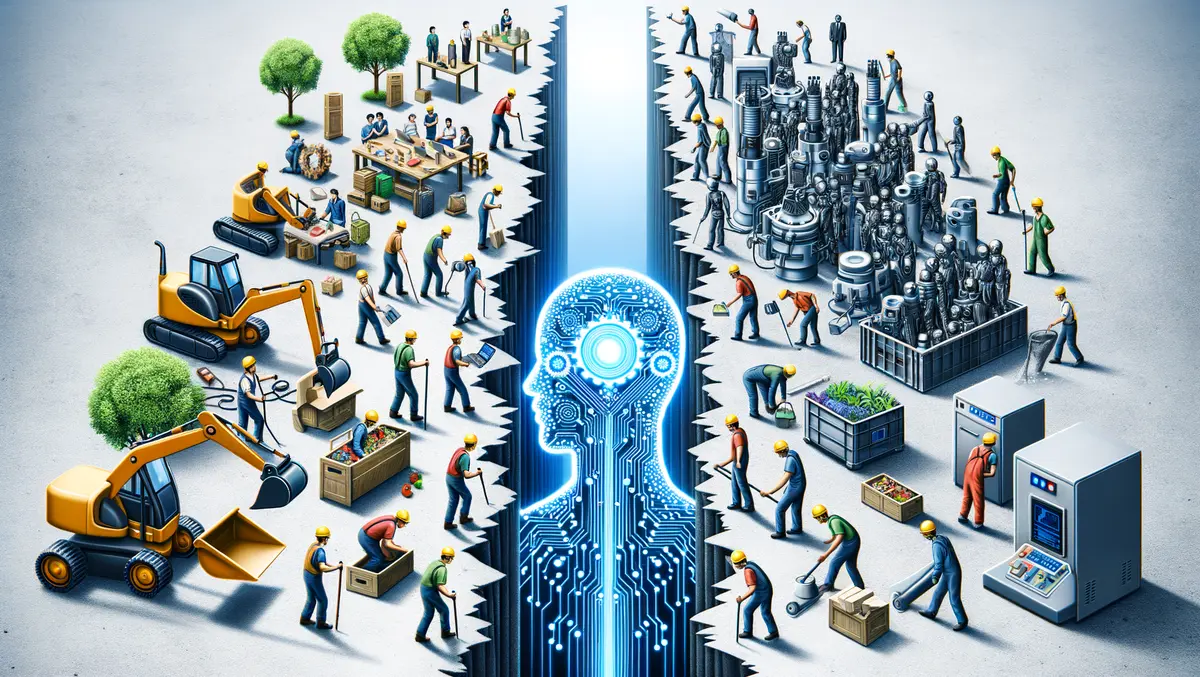
AI reshapes Singapore's labour market, highlights skills disparity
New research from Alteryx, which is in AI for enterprise analytics, has disclosed the potential workforce side effects of AI. As businesses and recruiters throughout Singapore strategize for an AI-based labour market transformation, many current roles will metamorphose or dissolve, reshaping the required skill set for future employees at an unprecedented rate. An illuminating aspect of the research, entitled 'Defining the Enterprise of the Future,' is the noted disparity between skills highlighted in the current hiring process and those necessary to optimise the full advantages of AI.
Libby Duane-Adams, Chief Advocacy Officer at Alteryx, said, "The rapid rise of AI necessitates business leaders to build and shape the future workforce now to flourish or risk being left behind in a future revolutionised by an immense shift in the skills needed for intelligence age." She added, "It's about fostering cultures of inventive problem-solving, learning to examine business issues through an analytic lens, and promoting collaboration across all levels to enable employees to utilise data in everyday roles."
The study furnishes vital insights into the roles projected to emerge in this evolving business environment, the anticipated composition of future data and IT teams, and the shifting priorities in the tech job market. An alarming revelation from the research titled 'Misaligned upskilling priorities could hinder AI progress' was that less than one-fifth of decision-makers prioritise critical thinking skills.
According to the study, 73% of Singaporean business leaders express concerns about AI-generated answers but are apparently overlooking the skills that could help alleviate risks. As organisations gear up for the future, new roles are predicted to emerge. 56% of the participants expect a Chief AI Officer role to be critical for a more holistic approach to AI strategy. Other expected roles include AI applications engineers (33%), AI/ML engineers (24%), and AI research scientists (23%). Nevertheless, fewer participants declared an immediate need for roles such as AI whisperers (18%) and prompt engineers (14%).
The research also suggests that some technical skills, including database administration (27%), single-language software development (21%), repetitive coding (20%), and AI and ML Development (18%), may become outdated. Over half (54%) of participants disclosed their organisations currently function in a siloed manner. However, 44% stated that future data teams would likely need to be decentralised.
Despite the well-documented AI skills gap, the research found businesses still prefer to recruit for roles with highly desirable technical skills. The key focus is shifting towards building human capabilities in light of AI's increasing significance. Yet, while 56% cited creativity as the top human skill needed in an AI-shaped work world, interestingly, only 17% counted critical thinking and 20% counted creativity amongst the top three in-demand skills.
Ms. Duane-Adams concludes, "Continuous investments in data literacy upskilling and training opportunities will create the professional trajectories where everyone can speak data and exploit AI applications for trusted, ethical outcomes."


